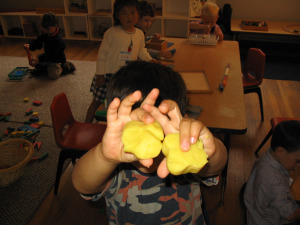Are we as smart as our cells?
When I was young, I had to choose between the life of being and the life of doing. And I leapt at the latter like a trout to a fly. But each deed you do, each act, binds you to itself and to its consequences, and makes you act again and yet again. Then very seldom do you come upon a space, a time like this, between act and act, when you may stop and simply be. Or wonder who, after all, you are. ~ Ursula K. Le Guin
These ponderings of Le Guin’s posted yesterday prodded my own: What if experience only reflects “life” when we’re as completely present to the moment as possible? And what if that can only happen if we’ve had adequate periods of rest and reflection?
One scientist’s research suggests that these hold true for every cell in our body. And if they’re true for us at that most basic level, they apply to every other aspect of human be-ing, too, she says.
In her book, Cellular Wisdom: Decoding the Body’s Secret Language, neuroscientist Joan C. King came to the conclusion that what she’d been studying under a microscope over two decades of research at Tufts University had significance beyond simple anatomy and physiology. Her up-close observation of cells led to the discovery that the keys to balance and well-being are written right into them, and modeled for us in the ways that both cells and our various body systems act and interact.
She proposes that just as each cell functions from a nucleus or center, so our human design intends that we live from some sort of core or center in order to be healthy and whole. Cells need to be connected with their center, and the same seems to hold true for us.
In order to do that, people, like cells, have to function within that core or center’s timeframe, which is the present. If my thoughts and awareness are swirling around in what-ifs of the future, or mired in what’s already become part of history, then I’ll be disconnected from that ever-present center. It doesn’t go away, but my functioning has no access to it.
Something else cells model that’s part of what enables them to function from that core, says King, is that they don’t stay “on” all the time.
The rhythm of cell life is cyclical. They routinely go “on” and “off.” They experience periods of significant output or expenditure of energy, then immediately shift over into a “refractory” period during which they rest and gradually accumulate energy and resources in preparation for their next expenditure. Cells have no choice but to rest. Their innate wisdom abides by this requirement of healthy function.
Humans often skip this part of the cycle, though it’s as much a part of our design as it is that of our cells, says King. Genuine rest and re-creation (to break the word down to its intended roots) are what help us have the capacity to access our core, our greatest source of strength. Without a rest cycle, we have little opportunity make use of this, or of that other power tool, learning from our experience by reflecting upon it. It’s the “resting” phase of our design cycle that gives us the time and space to reflect.
King’s discoveries about cellular activity point out a lot of other instructive patterns within cellular behavior. Beyond the individual level, cells only fulfill their highest potential when they connect with other cells. We, too, tend to achieve our highest purposes when functioning in relationship with others.
In its evolution, the human body, at the cellular level, has also adopted principles of moderation, diversity, and even compassion to help maintain its survival. How willing are we to learn from it with humility, apply its wisdom, and do the same?






